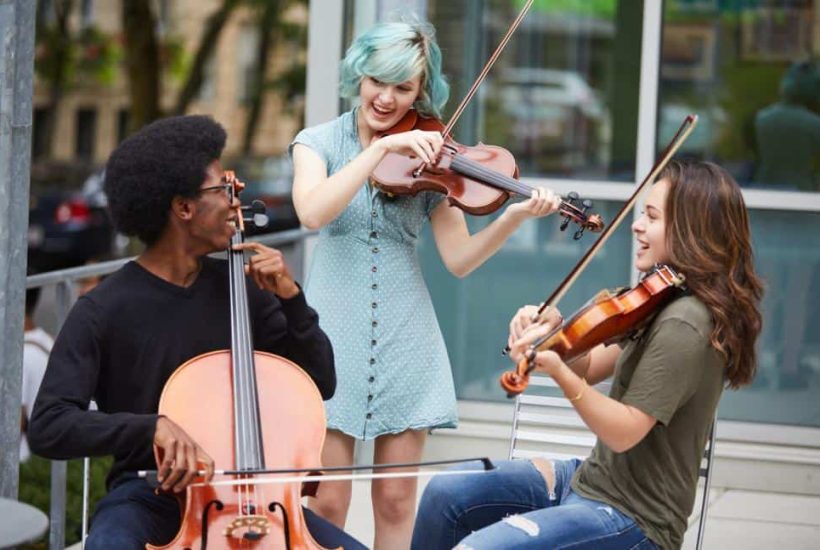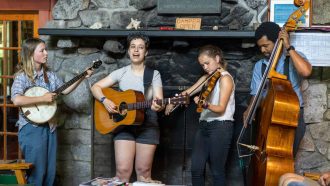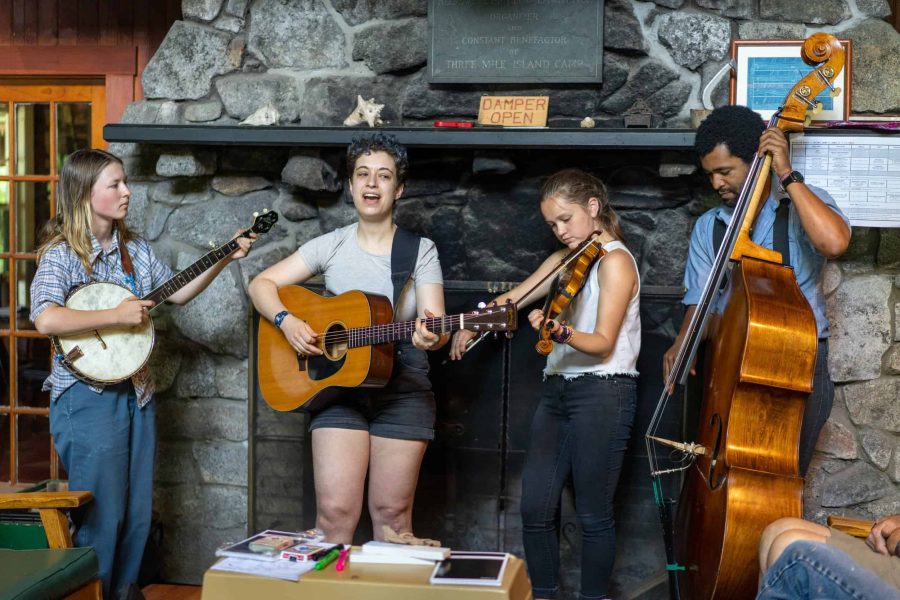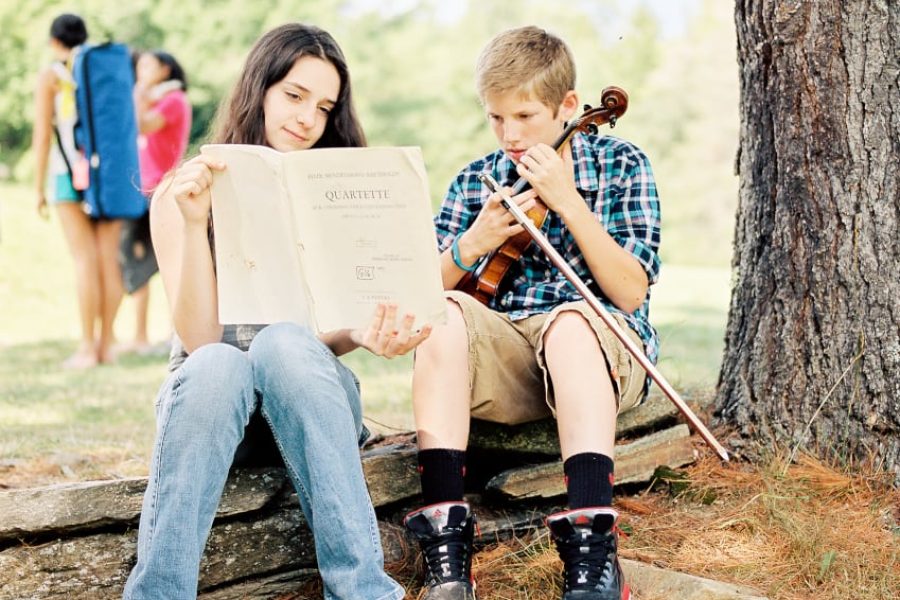The Berklee Global Strings Program takes place June 12 – June 16 this summer at the Berklee College of Music campus in Boston, MA. Under the direction of David Wallace, chair of Berklee’s String Department, the program explores a wide variety of string styles, including folk, jazz, bluegrass, classical, Pop, R&B, old-time, Celtic, World Music and more. There are small and large ensemble playing opportunities, as well as faculty clinics and jam sessions focusing on different styles. The week culminates with a student concert where everyone gets to perform what they have worked on in classes and ensembles during the week.
The classes offered are:
- Styles lab: You will rotate through multiple styles, receiving coaching from various faculty each day.
- Theory-in-action labs: You will receive hands-on instruction in ear training and applying theory through your instrument. To build knowledge sequentially, you will have the same group and faculty instructor each day.
- Small ensemble: You will play in a small ensemble coached by a Berklee faculty member who is an expert in the specific style the ensemble will study (e.g., Arabic, bluegrass, Celtic, jazz, pop, etc.).
- Large ensemble: You will participate in a large ensemble, performing varied repertoire in the Berklee Performance Center.
- Faculty clinics: Berklee faculty will host clinics focusing on career skills, performance techniques, and a diverse array of styles.
- Jam sessions: Each night, current Berklee students, faculty, and summer program students get together for jam sessions organized to focus on different styles (e.g., old-time, swing, free improvisation, pop, rock, R&B, etc.).
This is a wonderful opportunity to really dive into multiple styles, especially for young string players who aren’t sure what direction to take but love their instrument and want to keep exploring. The program is open to string players who are at least 15 years old, and adult learners are welcome to participate as well.
Berklee Global Strings Schedule
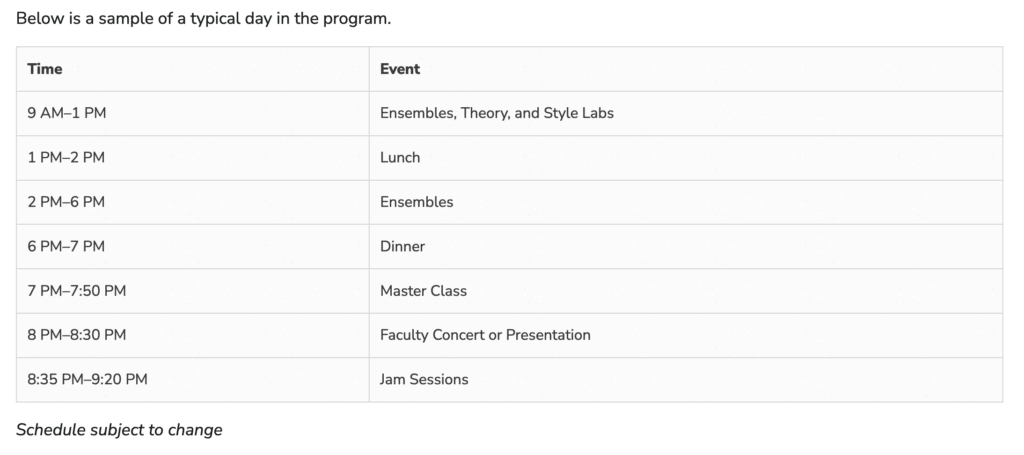
The Berklee Global Strings week would have been the absolute best place for me to go when I was in my mid to late teens. It would have no doubt opened up new doors that I didn’t even know existed at the time. I was a bit isolated in my Icelandic classical music environment and I didn’t have any local role models to look up to who played any other styles other than classical music, so I suffered a bit from having tunnel vision for my future as a violinist. Previous teachers at the program have included master fiddler Casey Driessen, and I will admit that if I had been exposed to an artist like that along the way my life as a musician would no doubt have taken other turns.

